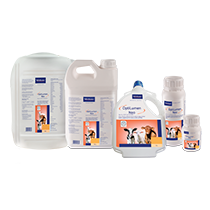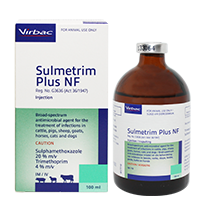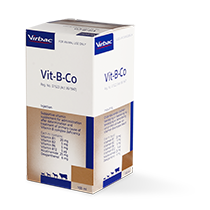
Diarrhoea in lambs / kids
Diarrhoea (scours) is one of the most common causes of death in a newborn animal. The main reason a lamb or kid dies from diarrhoea is because of the tremendous fluid and electrolyte loss and subsequent dehydration. With appropriate hydration, the lamb or kid is likely to survive. Many of the causes of diarrhoea are infectious in nature. Others are because of improper nutrition management. This includes feeding incorrectly mixed milk replacers, switching feed abruptly, or feeding too much milk.
Good management practices to reduce diarrhoea:
- It is always best to allow ewes / does to give birth in clean, large pastures intended specifically for this purpose.
- If possible, take the mother and young to a second pasture after giving birth.
- The worst conditions are small, wet, and dirty camps or pens.
- Ewes / does that are in poor condition will have low-quality colostrum, and weaker lambs / kids with poor immunity.
- Damage caused by internal parasites may be the cause of the bacterial infections, e.g. coccidiosis. Providing clean grazing / pastures and deworming lambs / kids will help.
Good management practices with hand-reared lambs / kids:
Many infectious organisms are shed in the faeces. Faecal-contaminated hands, milk bottles, buckets, coveralls, foodstuffs, pens, and the environment are just a few of the many sources for infection. Lambs / kids ingesting the organisms are directly infected.
Enterotoxaemia (Clostridium perfringens):
It is a common cause of diarrhoea in lambs. Types B and C both produce the highly necrotizing and lethal beta toxin responsible for severe intestinal damage. Lamb dysentery is an acute disease of lambs <3 weeks old. Many may die before clinical signs are seen, but some new born lambs stop nursing, become listless, and remain recumbent. A smelly, blood-tinged diarrhoea is common and death usually occurs within a few days. It is recommended that ewes /does are properly vaccinated before lambing.
Cryptosporidiosis:
Many veterinarians and farmers have recently identified crypto as the major cause of diarrhoea-associated mortalities in lambs and calves, particularly when they are not properly and constantly rehydrated.
Cryptosporidiosis and coccidiosis are protozoan diseases, causing diarrhoea, poor weight gain, and occasionally deaths in lambs / kids following weaning, or in unsanitary, stressful, or crowded conditions, or after entering the feedlots.
Cryptosporidium parvum is primarily a disease of lambs and kids less than 30 days old. While it use to be a milder disease than coccidiosis, farmers lately reported increased losses with secondary infections i.e. E coli as “cause of death”.
Infective oocysts are passed in the faeces and are transmitted by oral ingestion. Oocysts readily infect a variety of animals, including humans. Crypto is a prevalent disease in neonatal ruminants and in humans.
Effective treatments are not readily available and supportive care and primarily hydration is very important.
Control it with strict sanitation and the quarantine of sick animals. Disinfection of contaminated pens with ammonia or formalin will kill the oocysts.
Diagnosis:
It is always advisable to contact your local veterinarian at the onset of symptoms to prevent the spread of disease to uninfected animals. Take a fresh sample of the dung to a veterinarian as soon as possible for analysis. This will identify the bacteria involved and the vet will provide the correct treatment and advice required.
Treatment:
The most essential aspect of treating diarrhoea is maintaining proper hydration of the new-borns:
- Immediately isolating animals with symptoms will help prevent an outbreak of diarrhoea.
- Never mix water or electrolytes with milk. This may inhibit curd formation in the rumen. It is best to feed electrolytes like Replensol at least 30 minutes before or after feeding milk.
- When administering antibiotics, adhere to the prescribed administration and ensure the correct dosage is given. Antibiotics administered orally may damage the normal flora (bacteria) in the rumen and actually prolong the diarrhoea.
- Following stress or other ruminal disturbance, give the animals Rumix to help re-establish normal gut flora.
Conclusion:
Using better management practices, such as proper colostrum management, good hygiene, sterilisation of equipment, proper housing for the animals, vaccination, deworming, and preventing stressful situations can help control diarrhoea. Everything possible should be done to increase the immunity of the lambs / kids i.e. Multimin® supplementation to the ewes before lambing to ensure optimal colostrum quality.
Addressing these problems will contain or minimise most occurrences of diarrhoea. House lambs / kids of similar age groups together, but away from other groups may also help. Both of these management efforts will greatly reduce the chance of spreading infectious causes of diarrhoea from animal to animal.



